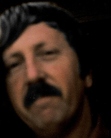Legendary Detectives, Charlie Chan
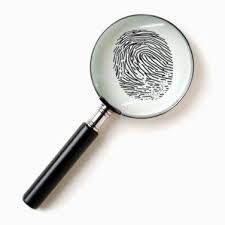
Say “Charlie Chan” and duck. A brickbat is on the way as soon as you mention Earl Derr Biggers’s Chinese-American detective. Yes, I know about demeaning stereotypes—scratch that and just say “stereotypes.” They are all demeaning. However, please try to judge an author, a book, a character, even a stereotype in the setting of the era to which they belong.
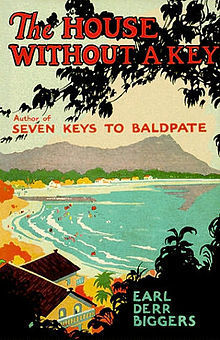
The House Without A Key is an old fashioned murder mystery in which Earl Der Biggers introduces us to both early 20th century Hawaii and the finest detective on the police department, Charlie Chan. In the book, Chan is not the main character, but he plays the pivotal role.
The author also presents the cultural diversity of the island territory. This is a successful launch of career for a detective beloved by readers and much more so by movie goers.
Chan emerges as a non-threatening, amiable, hyphenated American possessed of the supposedly "oriental" traits: stoicism and quiet persistence.
George Kuwa a Japanese-American was the first to portray Chan in movies. The House Without a Key. (1926) pic below
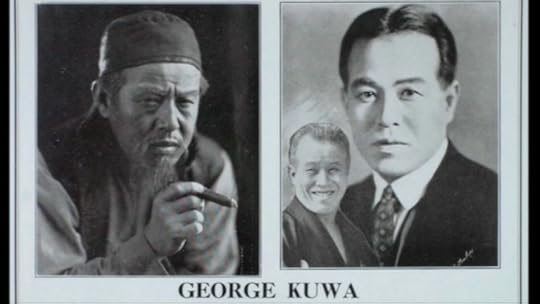
Every new hero needs a hook, something that makes him interestingly unique. Der Biggers gave Chan his ethnicity as an arresting image. At the time, the stereotype of the "Yellow Peril" was widespread in the US (think Fu Manchu).
Charlie Chan was the "benign" half of the stereotype. He was the wily, inscrutable, proverb-uttering Chinaman. His flawed syntactic English was a sop to the genteel bigotry of early 20th century American culture. It made him "acceptable" in the same way as employing the Swedish actor Warner Oland to portray him in most of the movies.
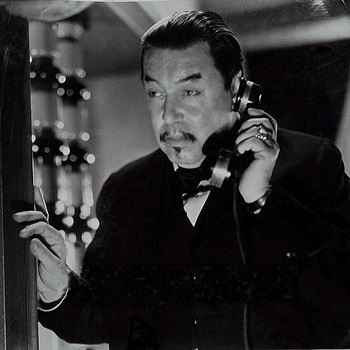
So we have the faux Confucius proverbs spoken to explain his thinking and the eventual undoing of the criminals he brought to justice. Chan was so beloved that virtually all children in the US grew up with a panoply of "Confucius say . . ." one-liners. The thing about "benign" stereotypes is that they are unconscious and not at all intended to offend—yet they did and do.
Still, Der Biggers' Chinese-American sleuth adds something new to the detective genre—humor. Charlie Chan gives us perhaps more humor than any of his predecessors.
He is an engaging man, not at all the "wily Oriental gentleman" of British colonial stereotyping . His charm lies in his use of aphoristic wisdom stated in faux-Confusion sayings. Chan actually is a sort of classic sage.
Sometimes he uses his “proverbs” to reveal what he has deduced and to explain motives, but also uses them to respond to the prejudice that he encounters. He is wise, calm, and as proper at Hercule Poroit. And like Poroit and Father Brown, he deliberately lets people underestimate him.
The House Without a Key
Published on November 27, 2020 06:44
•
Tags:
detectives, mystery, sleuths
No comments have been added yet.
Musings and Mutterings
Posts about my reading, my writing, and thoughts I want to share. Drop in. Hear me out. And set me straight.
- A.R. Simmons's profile
- 59 followers


